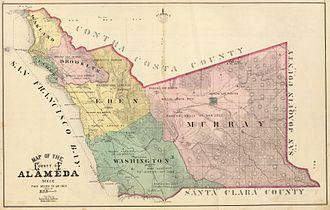Title: Alameda County Public Defender Calls for Enhanced Protections Following ICE Arrest at Courthouse
In a growing concern over the intersection of immigration enforcement and the judicial system, the Alameda County Public Defender’s Office has issued a call for increased protections following the recent arrest of an individual by U.S. Immigration and Customs Enforcement (ICE) authorities within a local courthouse. This incident has ignited a renewed debate about the safety and rights of vulnerable populations navigating the legal system, with advocates urging that courthouses should remain safe havens for all individuals seeking justice. As tensions escalate around immigration policy and enforcement practices, the public defender’s plea highlights the urgent need for legal safeguards that prioritize the integrity of the judicial process while protecting individuals from deportation. The ramifications of this case extend beyond the immediate situation, prompting questions about the role of law enforcement in public spaces traditionally reserved for justice and due process.
Alameda County Public Defender Urges Enhanced Safeguards Following ICE Arrests at Courthouse
The recent incidence of Immigration and Customs Enforcement (ICE) arrests at a local courthouse has prompted a strong call for enhanced protections for individuals participating in legal proceedings. Alameda County’s public defender highlighted the chilling effect such actions have on community trust in the judicial system, emphasizing that the courthouse should be a safe space for all individuals, regardless of their immigration status. This situation raises significant concerns about due process and the right to a fair trial, leading to fears that vulnerable populations may avoid seeking legal recourse.
In response, the public defender’s office is advocating for the implementation of various safeguard measures, including:
- Policy Revisions: Establishing clear guidelines that prohibit ICE from arresting individuals within courthouse premises.
- Legal Assistance: Expanding access to legal resources for those at risk of deportation during court visits.
- Community Awareness: Launching initiatives to educate residents about their rights when interacting with law enforcement at courthouses.
These recommendations aim to create a more equitable judicial environment, ensuring that all residents feel empowered to seek justice without fear of deportation or arrest. The public defender’s office is committed to advocating for these changes and collaborating with community organizations to protect the rights of the vulnerable populations they serve.
Impact on Immigrant Communities: The Legal and Social Ramifications of ICE Enforcement
The recent arrest of an individual by ICE at a courthouse has sparked significant concern among immigrant communities in Alameda County. Legal experts and advocates warn that such enforcement actions create a chilling effect on the willingness of immigrants to seek necessary legal assistance. The fear of detention looming over those who interact with the judicial system can lead to a substantial decrease in lawful participation, undermining the principle of justice that courts are meant to uphold. Many immigrants, who may already be vulnerable, now face increased risks and barriers when accessing essential services, such as legal representation and court proceedings.
Furthermore, the ramifications extend beyond individual cases, touching upon the broader social fabric of immigrant communities. The potential for trauma and anxiety caused by the presence of ICE in sensitive areas can result in long-term distress among families and can lead to isolation from supportive networks. Key consequences include:
- Disruption of community trust in legal institutions
- Decreased reporting of crimes and domestic violence
- Increased reliance on informal support systems
- Potential decline in public safety as bystanders hesitate to testify
As calls for protective measures grow louder, policymakers are urged to reconsider how immigration enforcement practices intersect with local law enforcement and community relations, striving to create an environment that fosters safety and trust rather than fear.
Proposed Measures for Courthouse Safety: Recommendations to Protect Vulnerable Individuals
In light of recent events highlighting the vulnerability of individuals within the courthouse environment, a series of recommendations have emerged aimed at enhancing safety and protecting those at risk. Legal advocates emphasize the importance of implementing measures that create a secure atmosphere while ensuring access to justice. Proposed initiatives include:
- Increased Security Personnel: Employ more trained officers to monitor courthouses, with a specific focus on areas where vulnerable populations congregate.
- Designated Safe Zones: Establish areas within courthouses where individuals can seek refuge and report any concerns without fear of detention.
- Clear Protocols for ICE Interactions: Implement guidelines for courthouse staff on how to handle situations involving immigration enforcement, ensuring that individuals can proceed with their legal matters uninterrupted.
Additionally, collaboration between local law enforcement, judicial officers, and community organizations is vital to develop an effective safety strategy. A concerted effort is needed to educate both staff and the public about the rights of individuals in courthouses, which can be facilitated through:
| Education Method | Description |
|---|---|
| Workshops | Host regular sessions for court users to learn about their rights and available resources. |
| Printed Materials | Distribute brochures outlining rights and support services within the courthouse. |
| Outreach Programs | Engage community organizations to disseminate information effectively to marginalized groups. |
Future Outlook
In light of recent events that have sparked widespread concern regarding the role of Immigration and Customs Enforcement (ICE) in local courthouses, the call from Alameda County’s public defender underscores the urgent need for clearer protections for vulnerable populations. As advocates rally for policy changes aimed at safeguarding the rights of individuals navigating the legal system, the dialogue surrounding courthouse arrests continues to evolve. The implications of ICE’s presence in these public spaces not only affect those directly involved but also resonate throughout the community, raising fundamental questions about justice and human rights. As this story develops, it remains crucial for stakeholders-lawmakers, legal advocates, and the community at large-to engage in meaningful discussions that prioritize the integrity of the judicial process and the protection of all individuals, regardless of their immigration status. The outcome of these efforts will be pivotal in shaping a fairer and more just system for all.








